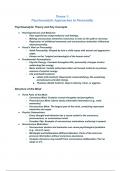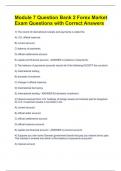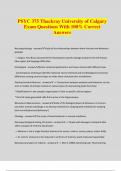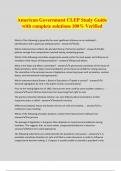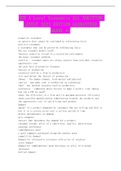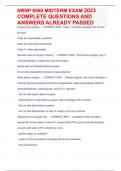College aantekeningen
Personality Psychology: Differences between People Summary Notes Exam Prep
- Instelling
- Erasmus Universiteit Rotterdam (EUR)
Hope it is comprehensive enough. I am a student so there could be mistakes but if there are any questions please message me. ARTICLES INCLUDED notes. ALL THEMES. .
[Meer zien]
